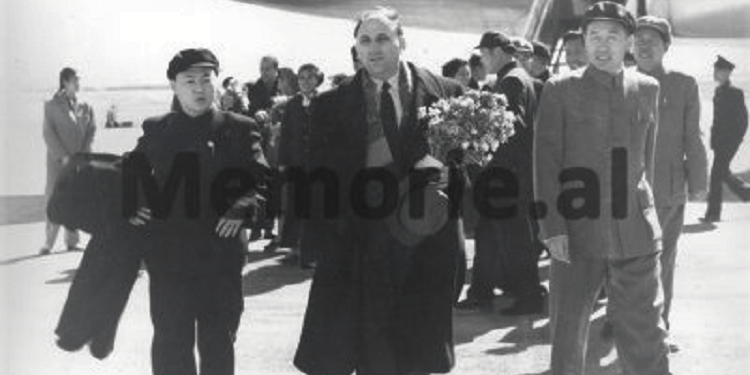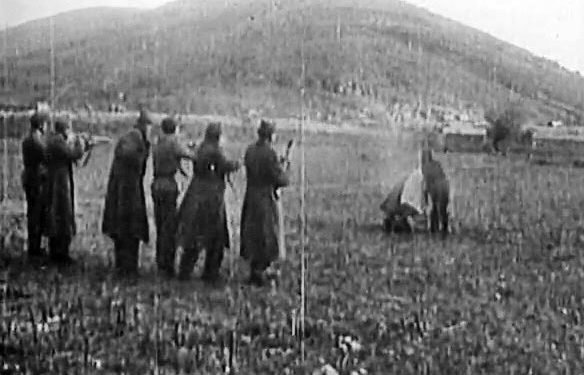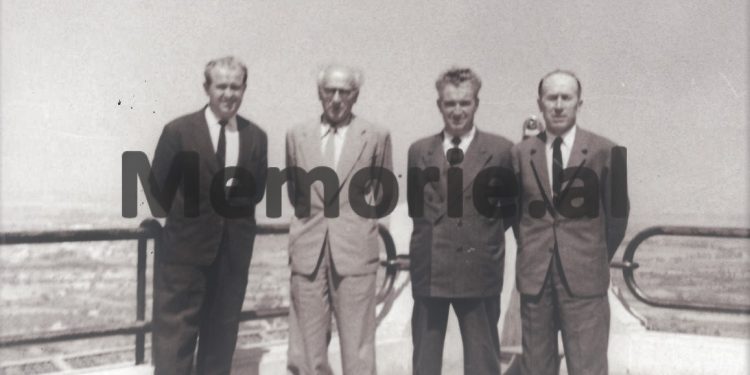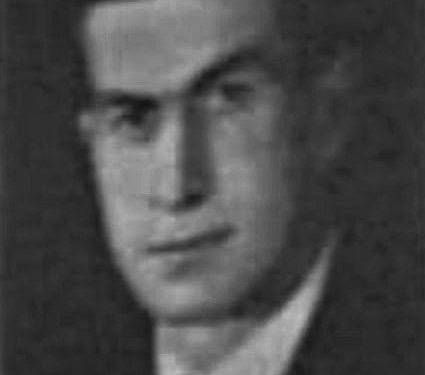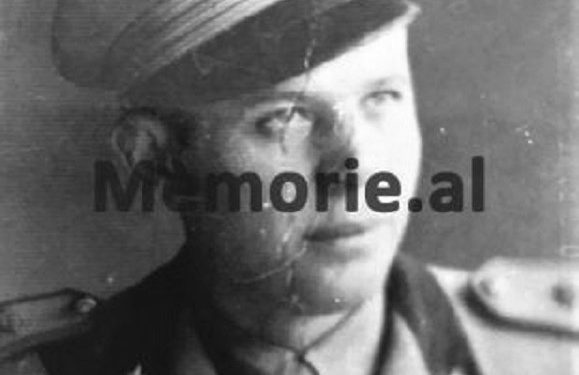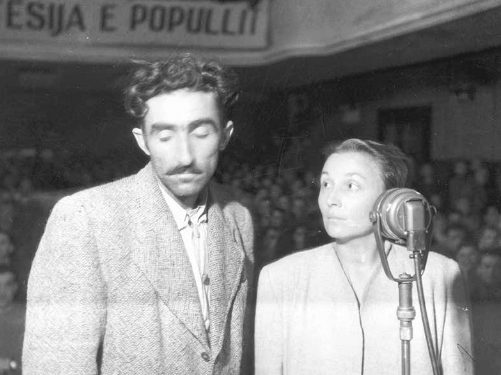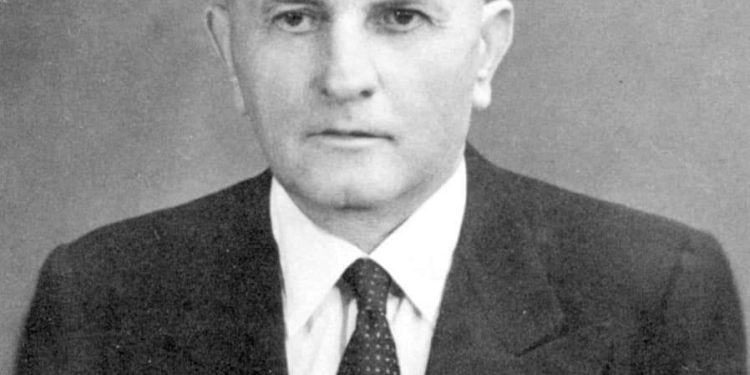The seventh part
Memorie.al/ publishes a study conducted by AIDSSH (Authority for the Information of Former State Security Documents), entitled; “DISAPPEARED – INSURANCE IN OWN WORDS”, 19 INSURANCE BRANCHES, 3,299 LIVES, 1 HISTORY’, in which the ‘History of State Insurance’, which belongs to a period of time from 1943 to 1991, is used. where 19 branches of the State Security are included, from the districts: Durrës, Kolonje, Burrel, Krujë, Lushnje, Dibër, Gramsh, Pogradec, Korçë, Tepelën, Elbasan, Lezhë, Saranda, Gjirokastër, Vlorë, Shkodër, Tropojë, Skrapar, Librazhd and Tirana.
INSURANCE IN OWN WORDS
“Those who think that communist regimes are the work of criminals only, overlook a fundamental truth: criminal regimes were not formed by criminals, but by convinced enthusiasts…”!
Milan Kundera, “The unbearable lightness of being”
Continues from last issue
Pogradec
“The feverish activists have undertaken foreign capitalist-revisionist discoveries, who have tried in every way to hinder and obscure our successes. A characteristic of recent years has been the organization of hostile groups sabotaging conspiracies…! Such was the group of the conspiracy, led by the traitors of the Party, Abdyl Këllezi, Koço Theodhosi, Piro Gusho from Pogradeci”.
Bound head to toe, father and son face off
Fleeing to Yugoslavia since 1942, D. C., turns out to have returned several times to Albania after the installation of communism and to have met some acquaintances, but the Security had not managed to catch him until, as he admits, “our organs took advantage of another moment, which is apparently simple, but gave the right result”. D. C., one night had stayed at the house of V. H., who, fearing that he would find out and be arrested, tells himself, discovering that after him, they had gone to D. M. To get to the father, State Security captures his son, officially called for choir, but; “upon arriving in Dega, he was secretly arrested, making him an intensive investigator, he claimed that his father harbored these saboteurs, but to help in their capture, he had to agree with his father”.
H.’s father, D., was called in secret, “to face the pressure of confronting his son. tied head and foot. Confused before that and by the pressure he put on Dervish, he admitted that he sheltered them and contributed to their capture”. The meeting trap that State Security staged was to leave the meeting of D. C. and R. Sh., with V. H., in a field outside the village and the slogan would be; hitting two stones three times, until they got the answer. D. C. is killed.
Boat, rags and a shovel
Eshref Zagorçani was educated in Italy and Austria and returned to Albania, taking with him Viennese manners and dreams. But darkness would fall soon. His father, Beqir Zagorçani, a senior officer, was killed in an assassination attempt against him in Pogradec. He remembered the day of his arrest this way; “I had to receive instructions for the Resistance Group that was organized in Pogradec. We were a group of intellectuals, all from abroad.
I would get the address of the meeting place from the sportsman of the “Dajtit” hotel. A trusted man. Good and well-heeled family, from our area. We knew each other as a family. I knew him myself. He was infiltrated in our sports organization. I hadn’t reached the last step at the exit of the Dajt hotel, when five Security officers grabbed my arms and forced me into the car.” Eshref Zagorcani was tortured day and night, in different forms, for two consecutive years. They wanted names and he wouldn’t give them. They sentenced him to death, shooting.
He confessed that; “waiting to be shot was the worst mental and physical torture I’ve experienced. Tied hands and feet with chains, they hung me for hours on a hook, on the wall of the cell upside down, like cattle”. Muç Xhepa, who received this confession, writes that; Eshref was kept in handcuffs waiting to be shot, for one hundred and thirty-seven days, and during this psychological torture, inside a cell, all alone, he had severe mental crises.
“We were two Eshrefs: the physical one, who was going to be shot, and the spiritual one, who lived in Vienna, in love…! On the last day, the lieutenant told me: The sentence has been returned to you with life imprisonment”.
For the Security, the event has a completely reserved approach: “Eshref Beqir Zagorçani from Pogradeci, a declassified element and in a hostile position, took advantage of the grievances of his workmate T. R. and together, attempted to escape…! The boat put water into the lake, through the cracks between the planks, and after several attempts to catch them with pieces of cloth, they turned and hid the boat…”! When the boat was found by the border unit, State Security claims that it got to the two, through the type of wood, rags belonging to the area of Mokra and a shovel with the name “P”, which belonged to a baker, who said he had given it to him. T.R.
Intensive investigation
The term “intensive investigator” appears several times in different circles, in the histories of the State Security. Often in the following paragraph, after the arrested have passed; “intense or lightning-fast investigators”, or implicate others, or agree to become collaborators. However, there are some of them who remain, as in the case of the H brothers. F. H.’s name appears in the M. H. process, and State Security decides to use this information.
“For meetings with the gang in May 1962, it was foreseen in the plan that this fact would be used and F.H. would be secretly arrested, in order to draw in the cooperation of his brother G.H., where the arrested brother would serve as a guarantee. ..! G. H. was called to the secret branch, but during the proceedings, he maintained a hostile attitude, testifying that he had only talked with M. T. (the whistleblower). To verify the data of B.p. “Lajmtari” and “Molla”, the combination was organized with T.O. (Operative Techniques, eavesdropping), in the presence of B.p., “Molla”, meanwhile the investigation of F.H. But it is not fully resolved, for the crime of meeting with saboteurs. G. H.’s withdrawal did not materialize and was taken in P.P. (preprocessing) for further checking”!
In 1972 Dh. was unmasked and arrested. F. A. with the pseudonym “Matufi”, as an agent of American Intelligence. He was a repatriate and was active in agitation and propaganda, always making comparisons with the foreign world.
Korca
The State Security had compiled a typology for his political opponents in Korça. In the “typology of enemies”, according to the organization in the years 1941-’44, are included:
- Religionists – like the “Kennedy couple”, for a Protestant couple who came to Korça in 1920;
- The French professors of the Lyceum of Korça (as well as students) who, according to the Security, were part of the French Discovery, and spread the “hegemony of French culture” in the city;
- Foreign consulates established in Korça;
- The students, representatives of the bourgeoisie, who attended higher studies abroad, were considered as envoys to become capable cadres, so that foreign discoveries could use them for their own purposes;
- Merchants, officials of Zog’s administration, bourgeois intellectuals and “corrupt people”;
- The financial guards who guarded the border against smuggling were also “compromised by foreign intelligence”.
The key events that marked the history of Korça under communism were the execution of the engineers of the Maliqi swamp, the attack on the Korça Lyceum, where some of the professors were sentenced, and the annihilation of political opponents.
Order of Enver Hoxha
“… to organize prisons and concentration camps. And to imprison all those elements accused of grave crimes, of high treason, of open collaboration with the occupier, also first-rate criminals… we must leave the impression that we are not inspired by unformed passions, but prudent and fair in actions….”!
“With the liberation of the city of Korça… special groups were created with communist people and neighborhood activists, who compiled lists of war criminals, spies and traitors of the country, who could not go with the enemy forces and who were hidden”!
The soldier of the Monarch, to the “Eighth in bronze”!
Lefter Ruço, was one of the five military sons of the Cologne merchant, Refail Ruço. After the “Normal” of Elbasan and schooling in Italy, during the Monarchy he worked as a soldier. Engaged in the Italo-Greek war, he withdrew (which was later used as a pretext), like many other Albanians, and then engaged with the partisans in the Anti-Fascist Resistance. After the conflict with them, he went with “Balli”. The communists call him to a meeting and try to kill him, but the villagers save him. Although he barely escaped, he continued his activity with “Balli”, where part of the meetings was held in the cafe of Kirinjinje in Korçë.
At this point, the account of his nephew, Armando Ruço, coincides with that of the History of Korçë Security, where it is said that Lefter Ruço; “killed in November 1943, by Selman Vishovica in Kostaq Qirinxhiu’s shop. Selmani (information unit) also kills a militiaman, who was chasing him”. Lefter, according to the Security, was connived by the Italian Discovery, to harm the Communist Movement, it is noted on pages 21-24 of the History of Korça. The figure of Lefter Ruço, also known as Lefter Lefteri, appears as a character in the movie “The Eighth in Bronze”, but his grandson, Armandoja notes that; “everything is given in that film about Lefter, it is fiction of the propaganda and historiography of the communist regime of that time”.
The Prime Minister dies in prison
Koço Kota was educated in political science at the University of Athens, he had been the chief secretary for Education with Ismail Qemali, and due to a close relationship with Ahmet Zogu, he would appoint him minister of the interior and then prime minister. As a loyalist of the King, in April 1939, when Zogu left Albania, he accompanied him to Greece. When Zogu left the Hellenic state, Kota, from Athens, settled in Thessaloniki. While Greece was involved in civil war, Albania had started the purges. Koço Kota’s granddaughter confessed that her uncle was kidnapped in Thessaloniki by three Security officers, who presented themselves as nationalists.
The event is more or less the same in the Korçë Insurance History version. “In December 1944, Comrade Nevzat Hasnedari was sent from the SEMP of Korça to Thessaloniki, Greece, who, assisted by some comrades he knew and an information comrade of the Greek Democrats of the EAM, arrested the former prime minister of the government of the Zogu regime, Koço Kotën, who was a fugitive abroad and arrived in Albania, who was tried and sentenced as a war criminal”.
What State Security does not say, but the niece tells in more detail, is that he was driven in a locked car and died tragically, in Burrel prison, in 1949.
Contempt and hate speech towards Maliq’s “saboteurs”.
The massacre of the Maliqi swamp engineers is well known in public opinion. Abdyl Sharra (hanging on the rope), Kujtim Beqiri (hanging on the rope), Vasil Mano (shooting), Zyrika Mano (shooting) and the Italian Eugenio Scaturo were sentenced to death, as saboteurs.
From the History of Korçë Security, although interpreted with communist rhetoric, it appears that; “sabotage”, in fact, was the impossibility of means and unfeasible work. Security connects them with the Americans and writes that Abdyl Sharra and Kujtim Beqiri reported to the American missionary and, contemptuously, adds “Zyrika Mano and engineer Vasil Mano were used to receive instructions. Zyrika, being an unemployed, fun-loving and liberal woman, constantly went to Tirana, directly to the American mission…”!
Wanting to devalue the figure of Zyrika Manos, who, when she was shot, was pregnant, State Security uses hate speech, which supported the persecution of her. “For Zurich, our bodies have suspicious data. She had been the wife of the Serbian priest, Popovic, the latter was captured and executed by the Partisan court. After that, Zyrika, as a charming and immoral woman, connected with the Italian officers and later with the missionaries”.
Weapons, from kulaks to loyalists
“During the period 1945-1948, 1,600 weapons were discovered, handed over and collected in the Korca district. In addition to the collection of weapons, according to a decree of the Presidium of the People’s Assembly, the weapons were distributed back to the people, but they were given to loyal and determined people of the people’s power…they used them in defense of the people’s power, in the fight against criminals, subversive gangs “!
The arrest of the priest
“At the beginning of 1947, the Security bodies were informed that the UN commission would come to Korça… we had information that the enemy element, when this commission came, would present their claims…! In addition to the above measures (arrests), surveillance measures were taken. From the observation, several meetings were recorded that some people took with the members of this commission, such as Father Thoma Shkurti, Dhimitër Konopulli, etc., who were later arrested”!
Tropoje
The hidden murder of the priest
When Albania was invaded by Italy, the Franciscan priest, Father Lek Luli, openly opposed fascism. Captured by fascist forces in Yugoslavia and sent to exile in Italy. When he returns, the country was under another conqueror. Like many other members of the clergy, he too would face a dark future.
However, he could not change either the fate of Albania or his own. His end was fatal and his concealment, equally so. Killed in Valbona, the State Security admits that he shot him and that he hid his murder, in order not to aggravate the relationship with the clergy, while the District of Shkodra informs him that he has disappeared, reveals himself, when he says important documents were found.
About his murder, the History of Security Tropoja mentions the key details; “From Shkodra, the Gestapo agent and exponent of the traitorous organization ‘Legality’, Pater Lek Luli, is sent to our district…! This one, as soon as he arrived in our district, was caught secretly and shot in Valbona. This old agent of the Italian Intelligence, later of the German Gestapo, was equipped with two types of personal documents”.
While State Security says it openly years later, the District of Shkodra, a few days after the murder, tried to hide it, betraying himself “From here, Patër Lekë Luli went to the district of Tropoja, to exert influence on the religious people there. He has disappeared, but it is conspiratorial and no one knows the way of his disappearance, because it would make the clergy very angry. You have found important documents. While the head of the English mission was escorted from Çeremi to Montenegro”!
The partisan who killed Patër Lek Lulin
“The murder was committed in the dark forest of Valbona. Pater Lekë Luli was sent by the enemy of the people, Abaz Kupi, to connect the actions of Gani Kryeziu, with the reaction of Dukagjin and with the other reactionary parties of Luma and Mirdita, to stop the forces of the National Liberation Army, for the liberation of northern provinces. The corpse of the traitor of the people, Patër Lekë Luli, was put on a huge fire, where his bones were also burned. Later, 100 reactionaries, pushed by the reactionary clergy of Shkodra, went to find the signs, but his dust had disappeared.”
Besa e primem
Communism, in some forms, marked the end of the code of honor in the mountains. Betrayal in bread, ambush, replaced the oath and the word given. The fugitive Mujë Halili had returned from Yugoslavia to Albania. The security, in the documents, accuses him of having killed an operative in the area. Halil agrees to surrender, on condition that he surrenders only to the head of the Branch, at night in his house and to no one else. “Supposedly”, says State Security, “he will be surrendered to him, so as not to put him in prison”.
Security authorities, taking into account his request, suspect that he had certain goals and that on the other hand, “otherwise, that criminal would not have been easily delivered alive into the hands of our authorities”. It was decided that he should be told to surrender to the lieutenant colonel’s house, and arrangements would be made for his disposal in the yard. “Thus, the criminal is caught in the act, as he was supposed to be, alive, and in this case, he says; “Wait for me in faith”!
In the following, the Insurance shows that during the time in the investigator; “tied hands and feet with a rope and placed in the corridor of the Dega bar”, he tries to escape and is killed in the Dega yard.
“They filled his belly with bullets”
In 1953, Sadik Mani, who escaped earlier, had returned to Tropoja. His arrival had been noticed and a murder of the council secretary and a government man in Luzhë was blamed on him by the State Security, who sent two operatives and two policemen to the village to learn his base.
In key places in the village, police and Security Brigade forces were deployed. “When it gets dark, they find themselves in the designated place for action. The night was so dark that the man could barely be seen, only when he got close to his feet. Baza had prepared dinner for the gang, firing warm pies and water bottles, in the bach near the house. At this time, the gang starts to come out of the den of the field, where it was dictated, and leaves in the direction of the bach where it would eat the pie and then leave for Yugoslavia. But the pie remained unbeaten…! They meet face-to-face with the operative, filling your stomach with rifle and machine gun bullets, Sadik Mani from Gria was killed and Ali Alia was injured”.
Colleague dies in prison
From being a liaison in the Internal Branch of Tropoja and Operative Worker of the State Security in Dragobi, in 1952, Mujo Bajram Martinaj, was released and went to live with his family in Kam, where he did agricultural work and from there, he ended up in prison, where he lost his life. and life. In the intermezzo between the Security and the prison, he has met fugitives who have returned to their homeland and has become part of the opposing groups of the regime. When he was arrested in 1953, a number of charges were brought against him, the main ones being; UDB agent.
After the arrest, it is written in the file that; “even as an officer of the Security bodies, he had weak morals and bad habits, he did not wage war against the class enemy”. He is accused of meeting some saboteurs, as part of Shaqo Hajdar’s group, being paid with gold napoleons, receiving bullets as a gift, being in Yugoslavia for 3 hours in a meeting and revealing secret information to the Security.
The reports that sank several families
In 1946, the group of Tahir Hoxha and that of Zaj Bregu, opponents of the regime, were put in the focus of the State Security, to be eliminated. In Hoxha’s group, in addition to the political opponents of the system, Tahir Hoxha, Ali Braha and Mal Shabani, R.Q. was also included, for whom the desertion was legendary (the term legendary means the spread of fake news). The legendary kills Zaj Bregu, injures several others and leaves this group with other tasks.
The political opponents realized who the traitor was, so Sigurimi took measures to protect his family, “but the measures were slow”, so the revenge was done. After continuous persecution, some of these political opponents surrendered, which led to the shooting of Ali Brahan, Ago Batusha and Mal Shabani.
R.Q., escapes and until recently remains one of the strongest collaborators of State Security, becoming one of those who with his reports sunk several families in Tropoja
Teqeja and dervishes, opponents of the regime
The State Security accuses an entire sect and some of its dervishes as foreign residents. It is about Teqe e Gris, of the Rufai tariqat. In the History of Tropoja, State Security lists him with the saboteurs of Can Males in the village of Bujan and accuses them of being put in the service of the Yugoslav Intelligence, at first Dervish Bajrami; “who at this time led the Teqe e Gris, which represented the Rufai sect, where it later extends according to the instructions of the Yugoslav UDB, this residency extends from the Tropoja area, deep into our land”.
State Security also builds a history of the Rufai tariqat, while noting that at the beginning, Sheh Adem Musaj came to Tropoja from Gjakova, who organizes myhyb and wears a dervish uniform in Krasniq, creates the council of Teqe in Gris, “this religious current spread a lot, by compromising most of the priests and influential persons and by compromising them, the influence of Dervishism also increases”.
From the Halveti tariqa, three dervishes were in the process. Since they speak against the regime, “our body, seeing that this trend was gaining momentum, arrests Uk Man Qerimin, Sadik Tahir and Haxhi Ibrahim”
Dervishes against power
“This government will be overthrown, God has not said that this work will last long, Yugoslavia is on the right path, our country is today for tomorrow. The way this government is working on us, with collectivization, no state has done it to us until today, the clergy condemn them for not following the pleasure of this government, ours are denying us, we are bad for us and all the people with this power “, etc
“The staff, although they had a low level of education, had acquired skills and loyalty to the Party line, which, as the facts showed, that their work with obedience to the Party line, was leading them from victory to victory, discovering and attacking the hostile activity, in every field and aspect that it appeared”!/Memorie.al
The next issue follows




